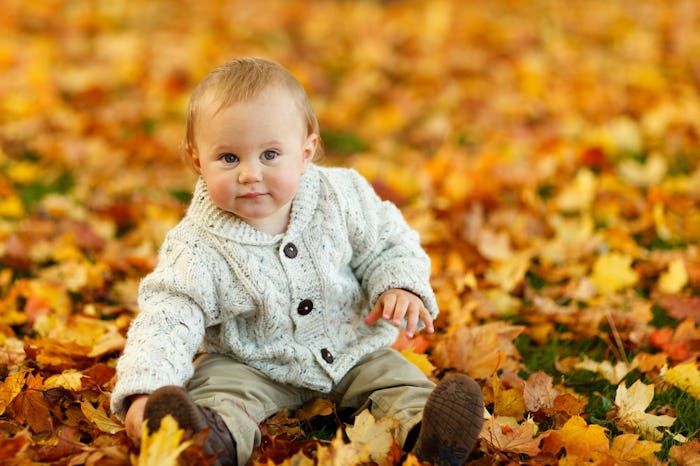Being outdoors in any weather can provide great benefits to your body, mind, and spirit, but sometimes it can also provide potential risk. Adults and children face some level of risk when they venture outside, but did you know babies do to? You may think babies can't be in much danger, since they don't move much and can barely get around on their own. And although this is true, there are common outdoor dangers for babies that you may not think about but should be aware of.
This doesn't mean you have to raise your kid in a bubble. Believe me, I live for outside play as much as my children do. Being with nature, even when it's cold or rainy, is sometimes the best remedy for a slightly sluggish or cranky mood. Not to mention there is a long list of benefits to being outside, soaking up the vitamin D. According to Web MD, vitamin D deficiency is linked to an increased risk in diabetes, arthritis, heart attacks, and cancer. Parents of babies are often encouraged to take daily walks with babies if possible in order to ensure the baby gets enough Vitamin D to prevent rickets, or a weakening of bones, according to Kelly Mom.
But you should still proceed with some caution. After all, babies are developing creatures with extreme curiosities, immature mobile skills, and possible environmental sensitivities. Here are seven common outdoor dangers for babies that you'll want to keep on your radar.
1Toxic Plants
" the vast majority of plants and mushrooms are harmless, there are a handful to watch out for," Alan Muskat, a wild food expert and director at No Taste Like Home tells Romper. "It’s more effective to teach your toddler to bring plants and mushrooms to you first than to tell them not to eat anything."
According to Baby Center a few accidental bites of a toxic plant will probably lead to nothing more than a stomach ache, but there are some plants that truly are dangerous to kids. The site recommended that if you have questions about any plants in your yard to take the clippings to a local nursery. Of course, if you suspect your child ate a toxic plant call your local poison control immediately.
2Small Rocks
Babies tend to explore the world by putting everything in their mouth — including small rocks. The Baby Center explained that small rocks pose a chocking hazard to babies, as well as any other objects that are smaller than one and a fourth inches.
3The Heat
Overheating can happen in the summer months and the winter months. Parents suggested that parents keep their child cool in the summer by staying in the shade or making sure they are well hydrated. Light weight clothes can also help. In the winter, you have to be careful not to bundle a baby up too much, because that could also overheat them, cause seizures, and even sudden infant death syndrome (SIDS) according to the Department of Human Services in Georgia. It's best to dress your baby in layers and monitor their temperature on a regular basis to make sure they're not overheating.
4The Sun
The surefire way to prevent sunburn in babies is to keep them in the shade, Parents explained. If your baby is older than 6 months and will be out in the sun for small increments of time the Mayo Clinic suggested that the baby have on sunscreen that is at least SPF 15.
5Insects
The same Parents article recommended using non-DEET insect repellent for babies, adding that you should spray the repellent on your baby's clothes before putting them on so they're not inhaling those fumes. As for possible bee and wasp stings the article suggested that parents or caregivers scrape the stinger out in the direction it came in instead of using tweezers or picking it out with your fingers.
The other bug you want to really look out for that you might not think about are ticks. According to the Centers For Disease Control and Prevention (CDC) ticks live in humid and moist environments and in grassy areas. If your baby has been crawling around on grass it'd be a good idea to remove your baby's clothing and wash it, as well as, check your baby for the insects or their bites. Bathing immediately or as soon as possible is recommended.
6Bodies Of Water
No baby is going to purposely take a dip in a pool or lake, but they may accidentally. If a mobile baby gets out of a house through an open window or even gets out of sight for a few brief moments they can wander into a kiddie pool, a bigger in ground pool, lake, or river. Baby Center noted that children can drown in an inch of water. Even if your baby is your backyard or at a park, the site suggested you keep a close on eye on them in case they run into even standing water from rain.
